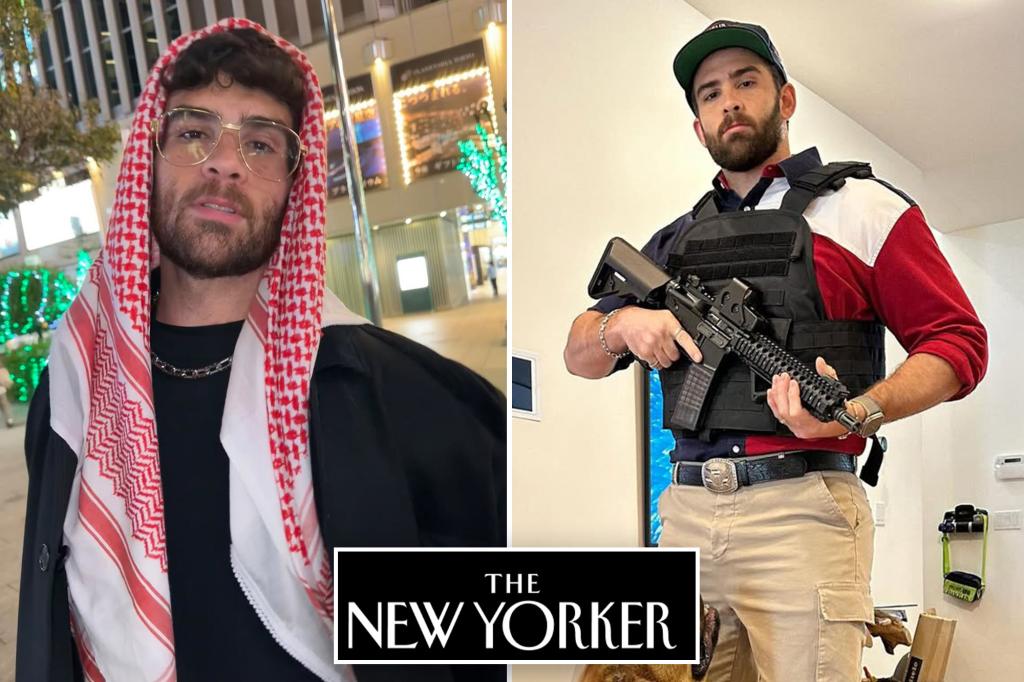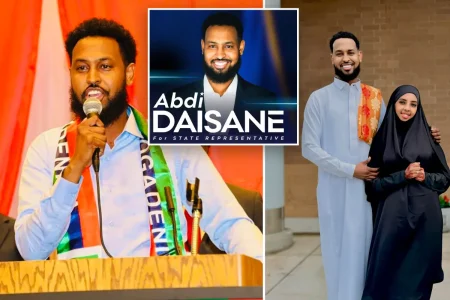The New Yorker’s Controversial Guest: Hasan Piker and the Limits of Public Discourse
The New Yorker magazine has found itself at the center of a heated controversy after announcing that Hasan Piker, a popular left-wing Twitch streamer with millions of followers, would participate in their upcoming festival. The announcement sparked immediate backlash from various organizations and public figures who cite Piker’s history of inflammatory statements as reason enough to exclude him from such a prestigious platform. The event, titled “New Political Arena,” is scheduled for next month and appears designed to showcase influential voices in today’s political landscape. However, critics argue that Piker’s inclusion normalizes extreme rhetoric and gives legitimacy to views many find deeply offensive and harmful.
At the heart of the controversy are several statements Piker has made over the years that have drawn widespread condemnation. Perhaps most notorious was his claim that “America deserved 9/11,” a comment that feels particularly painful as the nation approaches the 24th anniversary of the terrorist attacks. Additionally, he has referred to Israelis as “inbred” and stated that “it doesn’t matter if rapes happened” during the October 7 Hamas attack on Israel. Piker has also described Hezbollah as a “successful resistance group” and compared Houthi militants to Holocaust victim Anne Frank. On another occasion, he suggested that the killing of two Israeli Embassy diplomats in Washington, DC might have been a “false flag” operation, a comment that resulted in his temporary suspension from Twitch. These remarks collectively paint a picture of someone who has repeatedly crossed lines of respectful discourse, regardless of political orientation.
The Anti-Defamation League has been vocal in its criticism, stating that “The New Yorker’s decision to platform Hasan Piker is the latest example of mainstream media normalizing his brand of antisemitism and anti-Zionism.” Their statement went on to assert that “Piker’s toxic and extreme rhetoric opposing Zionism and the Jewish state normalizes antisemitism, reinforces bigotry, and launders terror,” concluding that such views “have no place at a conference devoted to prominent influencers.” The ADL’s position represents a growing concern that mainstream publications and events are increasingly willing to provide platforms for individuals who express views that would once have been considered beyond the pale of acceptable public discourse. Their statement reflects a belief that certain expressions, particularly those that may incite hatred or downplay atrocities, should render someone ineligible for prestigious speaking engagements.
Prominent women’s rights attorney Gloria Allred added her voice to the chorus of criticism, focusing specifically on Piker’s comments about sexual assault. “We should not provide mainstream forums for persons who may wish to normalize the concept that rape doesn’t matter,” Allred told the Telegraph, adding that “rape always matters, not only to the victims of rape, but also to the status and condition and future of women and girls.” Her comments highlight a concern that goes beyond political disagreement to touch on fundamental human rights issues. The suggestion that sexual violence could be dismissed as unimportant in any context is particularly troubling coming from someone with a large platform and influence, especially among younger audiences who make up much of Piker’s following on Twitch and other social media platforms.
Political figures have also weighed in on the controversy, with New York’s GOP Chair Ed Cox describing Piker as a “radical zealot.” Cox connected the New Yorker’s decision to broader political currents, stating, “As we approach the 24th anniversary of 9/11, a supposedly mainstream gathering of left-wing New Yorkers has invited a speaker who openly expressed his support of the attacks, in addition to calling for violence against Republican officials and numerous instances of overt antisemitism.” Cox further linked the controversy to local politics, criticizing Democratic leaders Kathy Hochul and Hakeem Jeffries for not taking a clear stance on what he described as “these radicals’ war on Western Civilization.” His comments reflect how such controversies quickly become integrated into broader political narratives and ongoing cultural debates about free speech, cancel culture, and the boundaries of acceptable discourse.
As of the reporting, The New Yorker had not responded to requests for comment about the backlash. This silence leaves open questions about the magazine’s decision-making process and whether they anticipated the controversy Piker’s inclusion would generate. The situation raises important questions about media responsibility, the balance between representing diverse viewpoints and giving platforms to harmful rhetoric, and who gets to decide where these boundaries lie. While free speech advocates might argue that even controversial figures deserve a hearing in public forums, others contend that providing prestigious platforms to individuals with histories of inflammatory comments can normalize extreme positions and potentially cause harm to vulnerable communities. As media outlets navigate these complicated waters, the New Yorker’s decision and the resulting backlash serve as a case study in the ongoing struggle to define the parameters of responsible public discourse in a polarized age.








